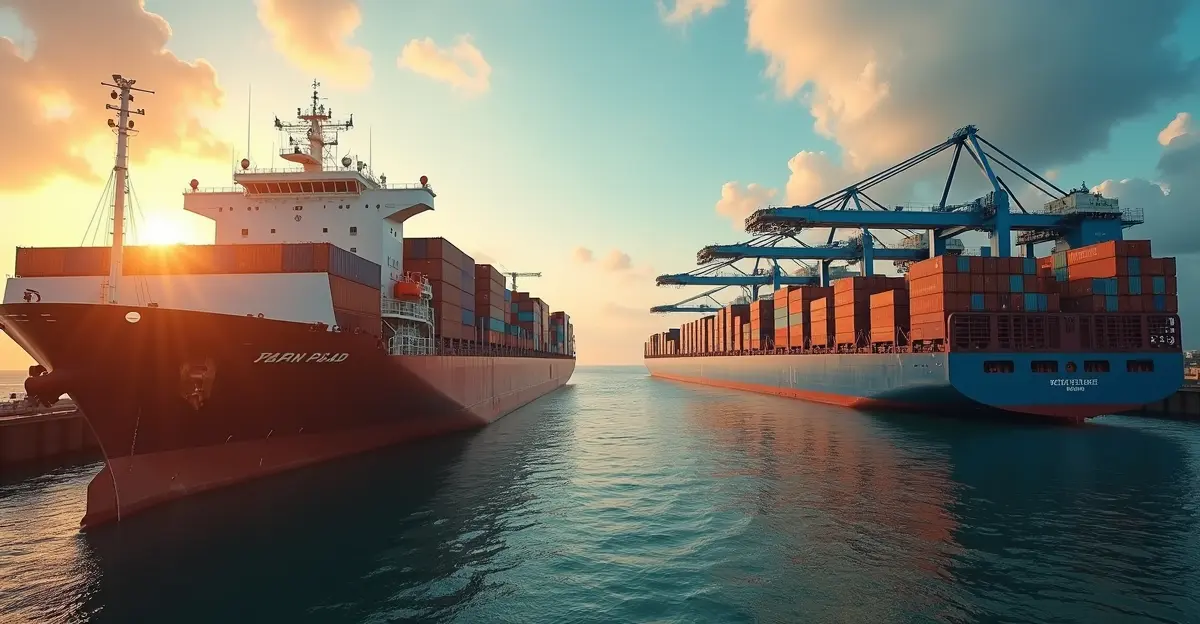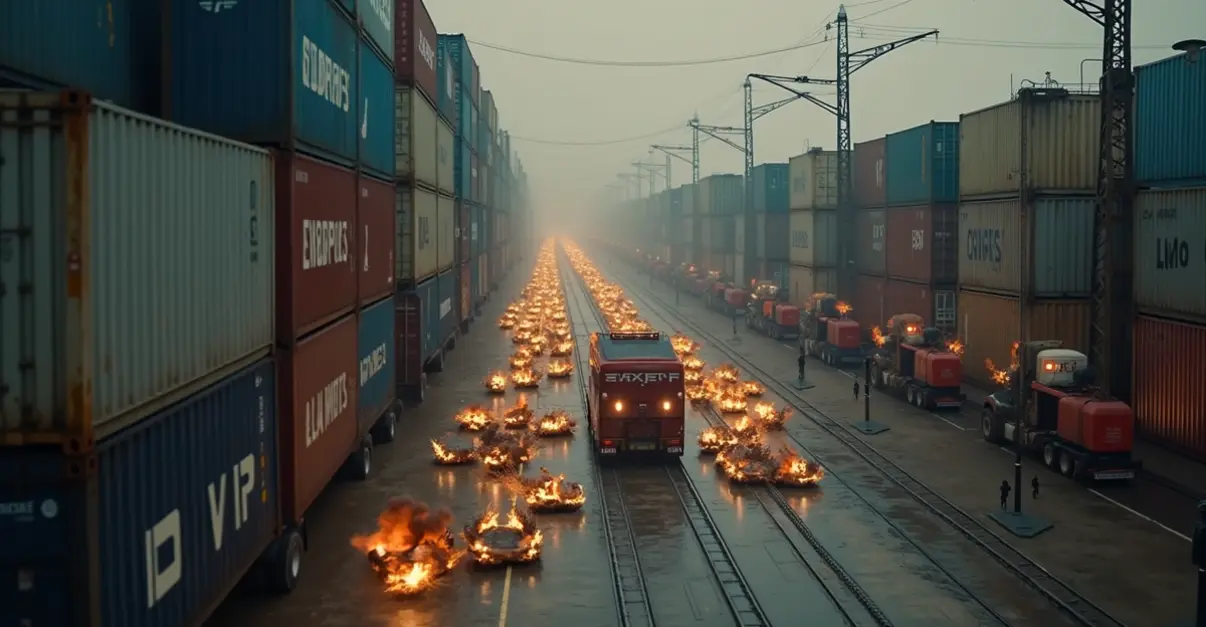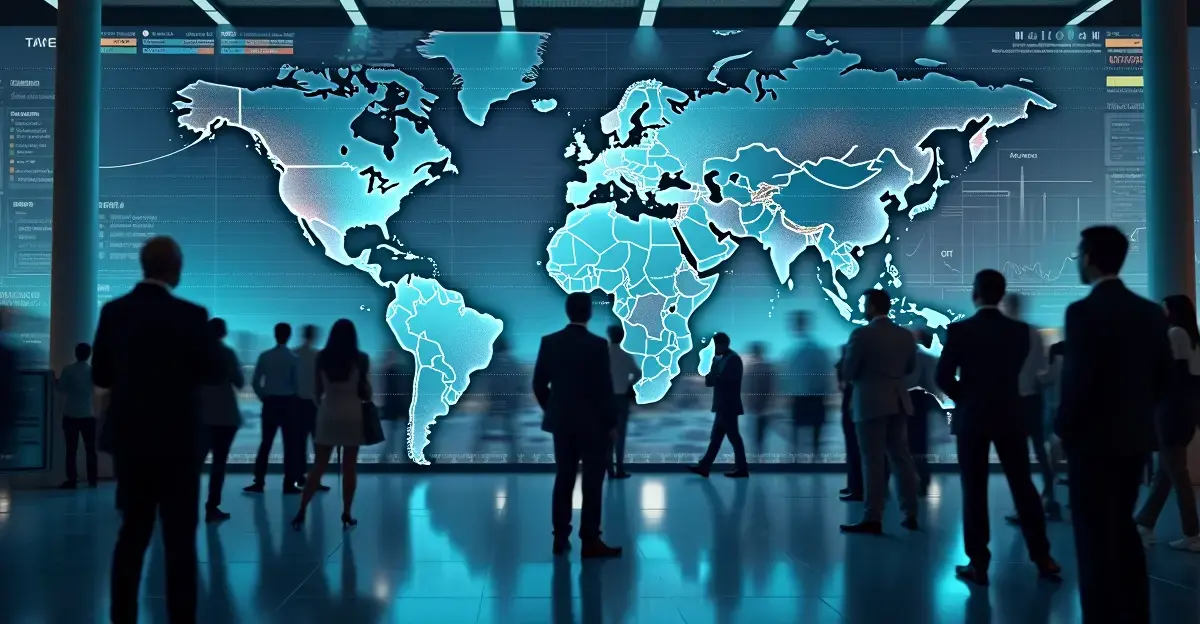Trade War Escalation Disrupts Global Supply Chains
The year 2025 has witnessed a significant escalation in trade tensions, with the United States implementing sweeping tariffs that are fundamentally altering global trade routes. On April 2, 2025, the US announced a series of 'reciprocal' tariffs based on trade deficit ratios, imposing minimum 10 percentage point increases on imports from 57 trading partners. This move, detailed in a CEPR analysis, has sent shockwaves through international markets, particularly affecting Southeast Asian economies like Vietnam, Indonesia, and Malaysia. The European Union's effective tariff rate is projected to jump from below 2% to around 17%, highlighting the broad impact.
Impact on Shipping and Logistics
The tariffs have triggered a major realignment in global shipping operations. According to Tridge reports, China-US ocean freight volumes have plummeted by 30-50%, with freight rates on West Coast routes dropping 44.55% over three months. This has forced carriers to reroute vessels, with Southeast Asia-US volumes rising by 20% due to frontloading. 'We're seeing a rapid shift away from traditional China-US corridors,' said a logistics expert from the Trade Council. 'Mid-size vessels are in high demand for newer trade lanes, but the volatility is straining capacity.' The suspension of de minimis exemptions for Chinese e-commerce packages has further strained air cargo, adding to the chaos.
Vulnerable Economies Bear the Brunt
Small and vulnerable economies are disproportionately affected by these tariffs. A UNCTAD report reveals that 28 affected partners each account for less than 0.1% of the US trade deficit, yet face tariffs that could devastate their export capabilities. For instance, Madagascar's $150 million vanilla exports and Côte d'Ivoire's $800 million cocoa exports are at risk. 'These tariffs offer little benefit to the US but cause immense harm to developing nations,' noted a UN official. The 90-day pause in tariff implementation, starting May 14, provides a brief window for exemptions, but the damage to global value chains is already evident.
Long-Term Implications for Trade Routes
Historically, trade routes have evolved from ancient pathways like the Amber Road to modern maritime networks. As per Wikipedia, trade routes facilitate the movement of goods over long distances, but the current tariff war is forcing a rethink. ShipUniverse analysis indicates that tariffs on Chinese imports are shifting manufacturing to Vietnam and Indonesia, while proposed tariffs on port cranes threaten US infrastructure projects. 'We're bracing for volatility in the second half of 2025,' shared a maritime industry insider. 'This could lead to stronger regional trade blocs and reduced dependence on China.' The UN warns of 'stormy seas' for maritime trade, with growth slowing to 0.5% in 2025 due to geopolitical tensions and rising costs.
Economic and Welfare Consequences
The economic fallout is severe. Under the 'status quo' scenario, US import tariffs have risen from 3% to nearly 30%, with China's retaliation accounting for 17 percentage points. Welfare losses are projected at 2% for the US and up to 2% globally under full implementation with retaliation. Sectors like electrical equipment and transport, which are highly integrated into global value chains, are suffering the most. 'The disruptions are costing businesses billions and could lead to long-term economic stagnation,' emphasized an economist from CEPR. The temporary rollback offers some relief, but the fundamental shifts in sourcing patterns suggest lasting changes to global trade dynamics.
In summary, the 2025 tariff escalations are not just a policy shift but a catalyst for redefining how goods move across the world. As trade routes adapt, the global economy faces increased uncertainty, with vulnerable populations and industries at the forefront of the challenges.

 Nederlands
Nederlands
 English
English
 Deutsch
Deutsch
 Français
Français
 Español
Español
 Português
Português










